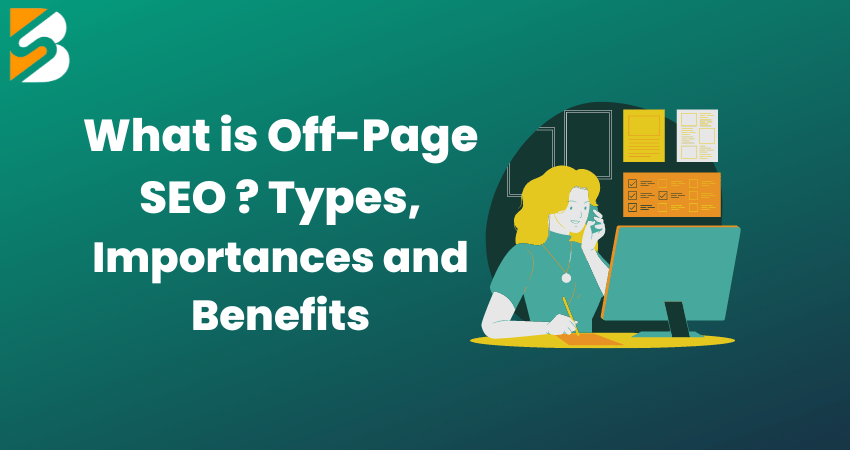Search engine optimization (SEO) is a critical component of any digital marketing strategy. It helps improve the visibility of websites in search engines like Google, Bing, Yahoo, and others. There are two types of SEO techniques – on-page and off-page SEO. In this article, we will explore what off-page SEO is all about, its importance, benefits, and various types.
What is Off-Page SEO?
Off-page SEO refers to actions performed outside your website that affects its ranking on search engines. Unlike on-page SEO, which focuses on optimizing individual web pages within a site, off-page SEO targets external links, social media mentions, online reviews, and other factors that impact how a site ranks in SERPs (search engine results pages). These external signals help build credibility and authority around a domain. By leveraging them effectively, business owners can significantly boost their online presence and drive more organic traffic over time.
Types of Off-Page SEO
There are several key types of off-page SEO strategies you may want to consider implementing for your own brand or clients. Here’s an overview of each one:
Link Building
Link building is one of the most important off-page SEO strategies that involve acquiring backlinks from other websites. Backlinks are links that point to your website from other websites. The quality and quantity of backlinks are considered by search engines as a key factor in ranking a website. Therefore, acquiring high-quality backlinks from authoritative websites is crucial to improve a website’s search engine ranking.
There are different types of backlinks that can be acquired, such as natural links, guest blogging, broken link building, and resource link building. Natural links are acquired when other websites link to your website without any effort from your side. Guest blogging involves writing content for other websites in exchange for a backlink to your website. Broken link building involves finding broken links on other websites and suggesting your website as a replacement. Resource link building involves creating valuable resources that other websites would want to link to.
Social Media Marketing
Social media marketing is another important off-page SEO strategy that involves promoting a website through social media channels. Social media platforms, such as Facebook, Twitter, LinkedIn, and Instagram, provide an opportunity to engage with a wider audience and promote a website’s content.
Social media marketing involves creating and sharing valuable content that resonates with the target audience. Social media also provides an opportunity to acquire social signals, such as likes, shares, and comments, which can indirectly impact a website’s search engine ranking.
Content Marketing
Content marketing is an off-page SEO strategy that involves creating and promoting valuable content to attract and retain a target audience. Content marketing can help build brand awareness, establish authority, and generate leads.
Content marketing involves creating various types of content, such as blog posts, infographics, videos, e-books, and whitepapers, that provide value to the target audience. The content can be promoted through various channels, such as social media, email marketing, and influencer outreach.
Influencer Outreach
Influencer outreach is an off-page SEO strategy that involves building relationships with influencers in a specific niche. Influencers are individuals or entities that have a significant following and can influence their followers’ opinions and behaviors.
Influencer outreach involves identifying relevant influencers in a specific niche and building a relationship with them. The relationship can involve collaboration on content creation, social media promotion, or endorsement of a product or service.
Local Search Listings
Local search listings involve optimizing business data across various directories like Google My Business, Apple Maps, Bing Places for Business, Foursquare, MapQuest, Yellow Pages, Angie’s List, HomeAdvisor, Porch, Thumbtack, NextDoor, CityGrid, Acxiom, Neustar Localeze, ExpressUpdateUSA, Hibu, Yodle, and Infogroup. Updating accurate contact details, hours of operation, categories/keywords, images, videos, descriptions, service areas, customer interactions, and positive reviews directly through these portals enhances brand reputation, relevancy in local searches, and increases chances of attracting nearby visitors eager to convert into loyal patrons supporting your business model.
Importance of Off-Page SEO
Improve Search Engine Ranking
Off-page SEO plays a crucial role in improving a website’s search engine ranking. Search engines consider the quality and quantity of backlinks, social signals, and brand mentions as important ranking factors. Therefore, implementing off-page SEO strategies can help improve a website’s visibility and ranking in search engine results pages.
Increase Website Traffic
Off-page SEO strategies can help drive traffic to a website through various channels, such as social media, content marketing, and influencer outreach. Increased website traffic can lead to higher engagement, conversion, and revenue.
Build Brand Awareness and Authority
Off-page SEO strategies, such as content marketing and influencer outreach, can help build brand awareness and establish authority in a specific niche. By creating and promoting valuable content, a website can attract a wider audience and position itself as a thought leader in its industry.
Diversify Traffic Sources
Off-page SEO can help diversify a website’s traffic sources by leveraging different channels, such as social media, influencer outreach, and content marketing. Diversifying traffic sources can help reduce the risk of relying solely on search engine traffic, which can be volatile and subject to algorithm updates.
Benefits of Off-Page SEO
Long-Term Results
Off-page SEO strategies, such as link building and content marketing, can take time to yield results. However, once implemented correctly, they can provide long-term benefits in terms of search engine ranking, website traffic, and brand awareness.
Cost-Effective
Off-page SEO strategies, such as social media marketing and content marketing, can be cost-effective compared to traditional advertising methods. By creating valuable content and promoting it through social media and influencer outreach, a website can generate organic traffic and leads without spending a significant amount of money.
Builds Relationships
Off-page SEO strategies, such as influencer outreach and guest blogging, can help build relationships with other websites and individuals in a specific niche. By collaborating and exchanging value, a website can establish mutually beneficial relationships that can help drive traffic and improve search engine ranking.
Improves User Experience
Off-page SEO strategies, such as social media marketing and content marketing, can indirectly impact user experience by providing valuable content and engaging with the target audience. By creating a positive user experience, a website can improve engagement, reduce bounce rates, and increase conversion rates.
Conclusion
Off-page SEO is an essential digital marketing strategy that can help improve a website’s search engine ranking, drive traffic, and build brand awareness and authority. Different types of off-page SEO, such as link building, social media marketing, content marketing, and influencer outreach, can be implemented to achieve these objectives. By implementing off-page SEO strategies, a website can diversify its traffic sources, build relationships, and improve user experience, leading to long-term benefits and cost-effective results.



